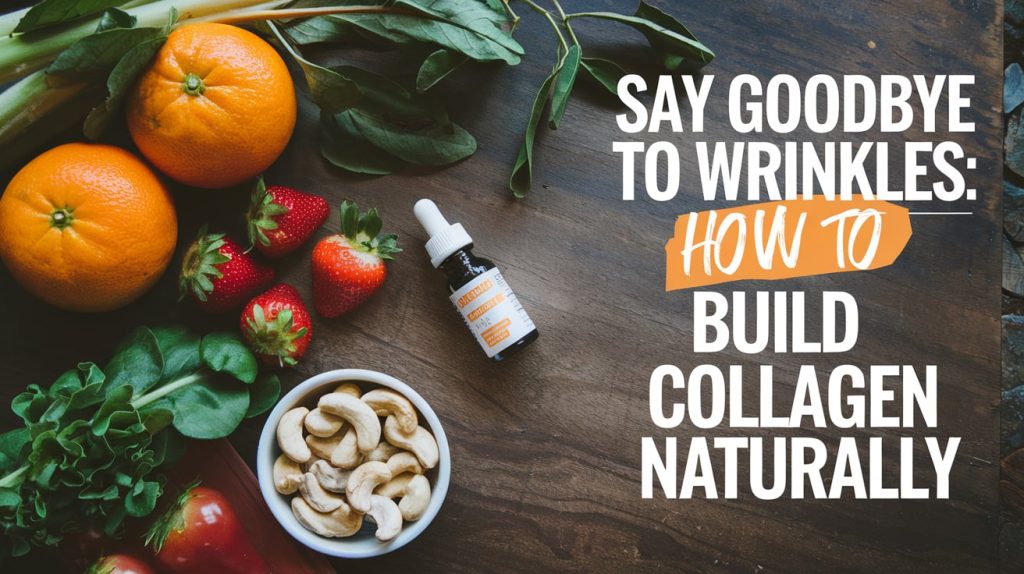
Learning how to get rid of wrinkles starts with knowing about collagen. It’s the most important protein in our bodies, making up about 30% of our total protein1. This protein is key to keeping our skin young and strong.
As we get older, our body makes less collagen. This drop starts around 25-34 years old, when we first notice changes in our skin1. Things like smoking and eating too much sugar also hurt our collagen levels1.
But, it’s not all bad news. A 2019 study showed that taking collagen peptides can make our skin more hydrated, elastic, and smooth after three months1. This finding gives us hope for naturally keeping our skin looking young.
Understanding Collagen: The Foundation of Youthful Skin
Collagen is a superhero for our body’s structure, key for keeping skin young and healthy. It’s the main protein that gives our skin, bones, and tissues strength and flexibility2.
The Science Behind Collagen Production
Collagen production is a complex process that reaches its peak in our mid-20s. It then starts to decrease with age. Our bodies have about 16 types of collagen, with three main types being the most important23.
- Type I Collagen: Builds skin, bones, and tendons2
- Type III Collagen: Supports muscles and organs3
- Type II Collagen: Important for joint health
Types of Collagen in Your Body
Our bodies are made up of different types of collagen, each with its own role. Type I collagen makes up about 75% of the skin’s dry weight, giving it the strength it needs4.
| Collagen Type | Primary Function | Location in Body |
|---|---|---|
| Type I | Skin strength | Skin, bones, tendons |
| Type III | Muscle support | Muscles, organs, arteries |
Role of Collagen in Skin Health
Collagen is essential for keeping our skin elastic and hydrated. As we get older, our bodies make less collagen, leading to wrinkles and less firm skin4.
Collagen: Nature’s own anti-ageing marvel, keeping our skin resilient and youthful.
Knowing how collagen is made helps us see its importance in keeping our skin healthy. It also helps us find ways to support its natural production.
Why Your Body’s Collagen Production Decreases with Age
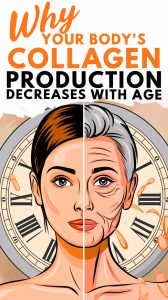
Collagen is the most common protein in our bodies. It’s key for keeping our skin healthy and strong5. As we get older, our bodies make less collagen, starting in our mid-to-late 20s5. This drop leads to noticeable changes in our skin over time.
The ageing process affects collagen levels a lot. Studies show big differences in collagen production between the young and the old:
- Young people (18-29 years) make about 82 ± 16 ng/ml of type I procollagen6
- Older people (80+ years) make around 56 ± 8 ng/ml of type I procollagen6
- Attachment of cells to collagen fibers falls from 78% in young skin to 58% in older skin6
These changes show up in our skin. Less collagen means our skin becomes less elastic, wrinkles more, and gets thinner7. Things like sun damage can make this worse, harming our collagen even more5.
The collagen decrease is a natural part of the ageing process, but understanding its mechanisms can help us develop strategies to support skin health.
But there’s good news. Research shows we can fight collagen loss. For example, a 2021 study found that taking hydrolyzed collagen supplements for 90 days can lessen wrinkles and boost skin elasticity7.
The Impact of Lifestyle Factors on Collagen Levels
Your daily habits are key to keeping collagen levels healthy. Knowing how lifestyle affects collagen can help you choose better for your skin and fight ageing.
Sun Exposure and UV Damage
Ultraviolet light can break down collagen. Too much sun can make your skin age faster by cutting down collagen production8. It’s wise to limit sun time to 10-20 minutes, 3-4 times a week, to keep your skin safe9.
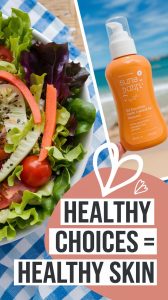
Dietary Influences on Collagen
Your diet is crucial for collagen health. Eating too much sugar can harm collagen by creating advanced glycation end products8. Here are some diet tips:
- Reduce refined carbs
- Eat foods rich in vitamin C
- Stay away from too much sugar
Daily Habits Affecting Collagen
Many lifestyle choices can affect collagen levels:
| Habit | Collagen Impact |
|---|---|
| Chronic Stress | Increases cortisol, which might lower collagen production9 |
| Sleep | Try for 7-9 hours each night to help cells repair9 |
| Smoking | Speeds up collagen breakdown10 |
“Prevention is better than cure when it comes to maintaining healthy collagen levels.”
By knowing these lifestyle impacts, you can help keep your collagen production strong10.
Building Collagen Naturally Through Diet
Starting natural collagen production is all about what you eat. Your diet is key to keeping your skin healthy and looking young11. Knowing which foods boost collagen is essential for glowing skin.
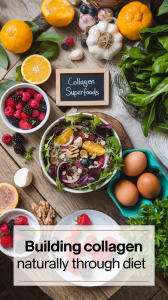
Some nutrients are vital for making collagen. Here are the best foods for collagen production:
- Citrus Fruits: Full of vitamin C, they help make pro-collagen11
- Egg Whites: Rich in proline, an amino acid needed for collagen11
- Berries: Full of antioxidants and vitamin C, they protect your skin11
- Garlic: Has sulfur, which helps make collagen11
Tropical fruits are great for your skin. Guava, kiwi, and pineapple have vitamin C and zinc, boosting collagen11.
| Food Category | Collagen-Boosting Nutrients | Benefit |
|---|---|---|
| Leafy Greens | Chlorophyll | Increases collagen precursors |
| Beans | Lysine, Copper | Supports collagen synthesis |
| Cashews | Zinc, Copper | Enhances collagen production |
Remember, a balanced diet is your strongest ally in maintaining natural collagen production.
Be careful with refined carbs and sugar. They can harm collagen production11. Even though supplements are available, eating well is the best way to keep your skin healthy12.
Essential Nutrients That Boost Collagen Production
To keep collagen levels healthy, you need a good nutrition plan. Collagen-boosting nutrients are key for strong skin and health13.
Vitamin C: The Collagen Catalyst
Vitamin C is vital for making collagen. It helps turn amino acids into collagen14. Without enough vitamin C, making collagen is hard13.
- Citrus fruits are great for vitamin C
- Berries are packed with vitamin C
- Bell peppers help make more collagen
Protein’s Fundamental Role
Protein is the main part for making collagen. About 25% of our body’s protein is collagen14. Eating protein-rich foods gives our skin the amino acids it needs13.
| Protein Source | Collagen Support |
|---|---|
| Lean Meats | High glycine content |
| Fish | Contains essential amino acids |
| Legumes | Supports amino acid synthesis |
Critical Minerals for Collagen
Some minerals are very important for collagen. Copper makes collagen fibers stronger by 70%15. Zinc helps with protein making and fixing tissues13.
Nutrition is the cornerstone of healthy, vibrant skin.
Adding these nutrients to your diet helps your body make more collagen. This keeps your skin healthy15.
Natural Skincare Practices for Enhanced Collagen Formation
Creating a good natural skincare routine is key for boosting collagen and keeping your skin healthy. It’s all about finding a balance that helps your skin heal itself naturally16.
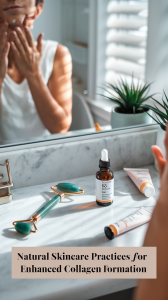
Your daily skincare routine is very important for boosting collagen. Here are some key steps:
- Gentle cleansing twice a day to keep your skin balanced16
- Using vitamin C serums to help make more collagen17
- Drinking and applying plenty of water
- Protecting your skin from the sun with sunscreen17
Protecting your skin from the sun is crucial for keeping collagen. Always reapply sunscreen every two hours, focusing on areas like your neck and hands16. Wearing a hat with a 3-inch brim also helps16.
Skin health shows how well you take care of yourself and your lifestyle.
Natural skincare isn’t just about what you put on your skin. It’s also about your overall health:
- Eating a diet full of protein and antioxidants16
- Managing stress
- Getting enough sleep (7-9 hours a night)16
| Skincare Practice | Collagen Impact |
|---|---|
| Facial Massage | Boosts blood flow and collagen making |
| Hydration | Helps keep your skin flexible and new |
| Vitamin C Serum | Directly helps make more collagen17 |
Being consistent is very important in natural skincare. Your daily choices greatly affect your skin’s collagen and health.
The Role of Exercise in Stimulating Collagen Production

Physical activity is a powerful tool for enhancing skin health and boosting collagen production. It’s not just a fitness trend—it’s backed by science. It helps keep your skin looking young and resilient18.
Regular fitness activities can transform your skin’s health. They stimulate collagen synthesis in several ways. When you exercise, your body boosts blood circulation. This brings vital nutrients and oxygen to your skin cells18.
This process activates fibroblast cells. These cells are key to making collagen19.
Beneficial Exercise Types for Skin Health
Different workout styles offer unique benefits for fitness and skin health:
- Resistance Training: Stimulates collagen production, improving skin elasticity19
- Cardiovascular Exercises: Enhance blood flow and nutrient delivery19
- High-Intensity Interval Training (HIIT): May reduce cellular ageing markers19
- Yoga and Pilates: Help lower stress hormones that impact skin health19
Optimal Workout Frequency for Collagen Stimulation
Consistency is key in workout benefits for skin. Aim for moderate exercise routines that balance intensity and recovery. Experts recommend:
- 30-45 minutes of exercise 3-4 times per week
- Mix of strength training and cardiovascular activities
- Allow adequate rest between intense workouts
Remember, exercise is not just about building muscle—it’s about nurturing your skin from within.
By incorporating regular physical activity, you can naturally boost collagen production. This enhances skin resilience and slows down ageing1819.
Common Myths About Collagen Production
Exploring collagen can be tricky, with many myths confusing us. People often think collagen supplements and creams can magically reverse ageing. But the truth is more complex.
Let’s look at some common collagen myths:
- Topical collagen creams can directly restore skin collagen20
- Collagen supplements work instantly21
- Collagen is only for women20
One big myth is that collagen creams can fill in skin collagen. But, collagen molecules are too big to get through the skin’s top layer. By 40, we’ve lost about 30% of our collagen20.
“Not all collagen supplements are created equal” – Skin Health Expert
Collagen production is complex. Supplements can help, but they’re not magic. Our body’s ability to make collagen depends on what we eat and how we live21. Collagen levels drop by about 1% each year after 20, so we need to take care of our skin early.
| Collagen Myth | Reality |
|---|---|
| Collagen creams restore collagen instantly | Molecules are too large to penetrate skin |
| Supplements work immediately | Significant improvements seen around 12 weeks |
| Collagen is only for women | Benefits all genders equally |
Knowing these myths helps us make better choices for our skin. It sets realistic hopes for collagen production.
Professional Treatments for Collagen Stimulation
Natural methods are key for collagen production. But, professional treatments offer advanced solutions for skin rejuvenation. These methods target deeper skin layers and boost collagen synthesis.
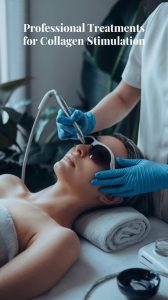
Microneedling: A Revolutionary Approach
Microneedling is a leading-edge treatment for collagen. It makes tiny holes in the skin, which triggers healing22. Results are seen in four to six weeks after treatment23.
- Stimulates natural collagen production
- Minimal downtime
- Can cause temporary redness and mild swelling23
Radio Frequency Skin Tightening
RF skin tightening heats deeper skin layers. This causes collagen fibres to shrink and tighten22. Treatments like Morpheus8 combine microneedling with radiofrequency for better collagen production22.
Modern aesthetic treatments offer sophisticated ways to boost collagen beyond traditional skincare methods.
Sculptra and Radiesse are other options for collagen stimulation. Sculptra uses poly-L-lactic acid to restore volume and stimulate collagen24. Radiesse gives immediate volume and long-term collagen benefits22.
| Treatment | Duration | Results |
|---|---|---|
| Microneedling | 30-45 minutes | Results in 4-6 weeks |
| Sculptra | 30-45 minutes | Results in 3-6 months |
| Radiesse | 30 minutes | Results within one week |
Always talk to a qualified aesthetic professional. They can help choose the best treatment for your skin.
Conclusion: Creating Your Collagen-Boosting Routine

Creating a good collagen-boosting routine means looking at your whole life. It’s about making a long-term plan for your skin health. Since collagen levels drop as we age25, it’s important to act early to keep your skin looking good26.
Eat foods that help make collagen, like those full of vitamin C and amino acids. Also, exercise, manage stress, and get enough sleep to help your body make more collagen26. Try face yoga and use skincare products like retinol to help your skin heal itself25.
Being consistent is crucial in your collagen-boosting routine. While treatments and supplements are helpful, the best way is to eat right, live well, and use the right skincare. A complete plan will not only make your skin better but also improve your overall health27.
FAQ
What exactly is collagen and why is it important for my skin?
Collagen is a key protein that supports your skin’s structure. It gives your skin its elasticity, strength, and hydration. It’s like the framework that keeps your skin firm and youthful.
As you get older, your body makes less collagen. This leads to wrinkles and sagging skin.
At what age does collagen production start to decline?
Collagen levels reach their peak in your mid-20s to early 30s. Then, they start to go down slowly. By 40, most people see a big drop in collagen, losing about 1% each year.
Can I boost collagen production naturally through diet?
Yes, you can! Eating foods high in vitamin C, protein, and amino acids like glycine and proline helps. Good foods include bone broth, eggs, fish, citrus fruits, berries, and leafy greens. A balanced diet is key to keeping collagen healthy.
Do collagen supplements actually work?
Collagen supplements can be helpful, but the science is not clear-cut. They might support skin health, but they’re not a quick fix. The best approach is to eat well, stay hydrated, exercise, and use good skincare.
How does sun exposure impact collagen?
UV rays damage collagen, speeding up ageing. Always use sunscreen, wear protective clothes, and avoid too much sun to keep your skin’s collagen strong.
Can exercise really help boost collagen production?
Yes, exercise can help by improving blood flow and getting nutrients to your skin. Both cardio and strength training can trigger collagen production, making your skin healthier.
Are topical collagen creams effective?
Most collagen creams don’t work well because collagen molecules can’t get through the skin. Instead, use skincare with vitamin C, retinol, and hyaluronic acid to support collagen.
What lifestyle factors negatively impact collagen production?
Too much sugar, smoking, stress, not enough sleep, and a bad diet can harm collagen. Avoid these and live healthily to keep your collagen levels up.
How long does it take to see improvements in collagen production?
Seeing results takes time and effort. You might notice better skin in 4-12 weeks with the right diet and lifestyle. It’s a slow process that needs long-term effort.
Are there any non-invasive treatments that can stimulate collagen?
Yes, treatments like microneedling and radiofrequency therapy can boost collagen. They create small injuries that trigger your body’s healing response. Always talk to a professional before trying any cosmetic treatments.
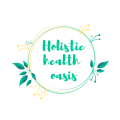
I simply wished to thank you very much once more. I am not sure the things I would have achieved without the type of techniques discussed by you concerning this concern. It absolutely was a intimidating dilemma in my circumstances, but spending time with your professional approach you resolved the issue made me to weep for gladness. I will be grateful for your guidance and thus believe you are aware of an amazing job you are putting in educating many people by way of a site. Probably you have never met any of us.
The beauty of your writing lies not only in the clarity of your ideas but in the way you allow those ideas to breathe and grow. Each sentence feels like a step forward, yet it’s not rushed. There’s time to pause and reflect between the lines, and in that space, the words take on a life of their own. It’s rare to find writing that feels so alive.